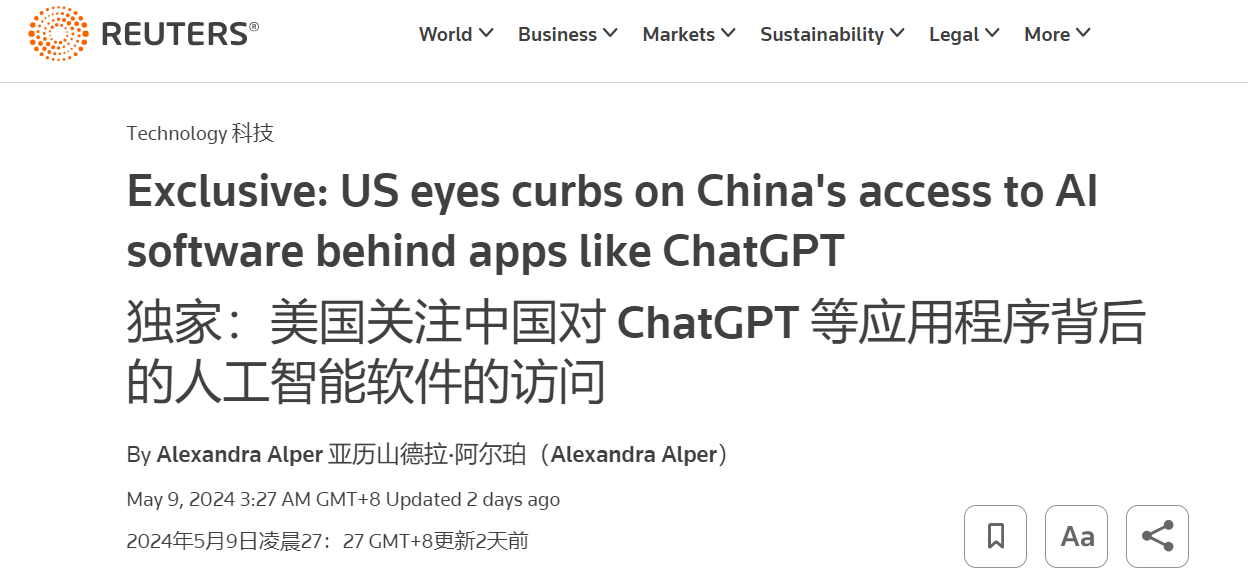According to a report on Singapore's "Lianhe Zaobao" website on May 9, the Biden administration in the United States reportedly plans to restrict the use of American artificial intelligence (AI) models by China and Russia.
Reuters quoted people familiar with the matter as saying that the U.S. Commerce Department is considering promoting a new regulatory measure to restrict the export of proprietary or closed-source AI models. Initial plans include putting guardrails around AI models like ChatGPT.

When asked, the Chinese Embassy in the United States responded that the move was "a typical act of economic coercion and unilateral bullying, and China is firmly opposed to it," adding that it would take "necessary measures" to protect its own interests. According to Reuters analysis, this move is aimed at cooperating with a series of restrictions on the export of AI chips to China in the past two years, but regulators are still struggling to keep up with the speed of industry development.
The report believes that U.S. companies such as OpenAI have developed some powerful closed-source AI models that can sell related services with little oversight from the U.S. government.
On May 10, at the regular press conference of the Ministry of Foreign Affairs, a Reuters reporter asked: A bipartisan group in the U.S. House of Representatives introduced a bill that would make it easier for the Biden administration to implement export controls on artificial intelligence (AI) models to avoid U.S. Technology falling into the hands of “foreign bad actors.” What is China's comment?
In this regard, Foreign Ministry spokesperson Lin Jianze said that facts have proven that China-US economic, trade and investment cooperation is mutually beneficial and win-win, and both countries and their peoples are beneficiaries. Politicizing, tooling, and ideologicalizing economic, trade, scientific and technological issues, and forcibly promoting "decoupling and breaking links" will impact the normal trade and investment exchanges and the stability of the production and supply chains between the two countries and the world, and are inconsistent with the wishes of any party, including the United States. Benefit.
Lin Jian pointed out that the United States should implement its commitment not to seek "decoupling" from China and not hinder China's development, stop protectionist practices, stop technological blockade restrictions on China, and stop disrupting the international economic and trade order. China will take necessary measures to firmly safeguard its legitimate rights and interests.